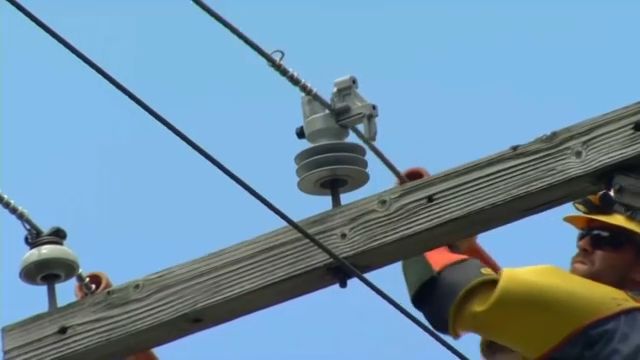Just as some Hudson Valley residents were throwing away food that spoiled during a days-long power outage, Assemblyman Jonathan Jacobson is asking state officials to consider a new system in which utility lines would be buried underground.
Jacobson’s legislation would require the New York State Public Service Commission to do a comprehensive study on the feasibility and costs of burying the state’s utility lines.
What You Need To Know
- Hudson Valley assemblyman wants an underground utility line system considered
- Central Hudson officials say it'd prevent power outages, but would be very expensive
- Assemblyman says he isn't discouraged by the costs, and says he has support from other lawmakers
“What I figure is, we should study it and see what the costs should be,” Jacobson explained to an interested constituent outside a store in the Town of Newburgh. “Obviously, we can pass it along, get some subsidies, and we see what we can do.”
Central Hudson officials said that while burying all their system’s power lines would prevent more outages, doing so would be expensive and ultimately counterproductive.
The company estimates the cost of a full system conversion from overhead to underground would cost $18 billion; each customer would pay thousands more each year.
“It’s more than just wires,” Central Hudson spokesman John Maserjian said of the delivery system.
During a Zoom interview Monday, Maserjian told Spectrum News that densely populated parts of some cities (Newburgh, Poughkeepsie and Kingston) have underground service, and lines for new subdivisions with more than five homes are required by the state to be installed underground.
He said that an underground system would not only just cost a fortune to install, but also cost exponentially more to update and require digging up the environment.
“Many times you have to cross streams, wetlands, and other places” to install underground lines, Maserjian said.
He added that Central Hudson would support the study Jacobson is seeking, though such a massive project would subtract from the company’s investments in new forms of energy delivery.
“All of the investment plans that utilities have to maintain their systems would all have to be altered,” he said.
Jacobson was not discouraged, and said the bill is already getting verbal support from other lawmakers.
The bill, if passed and signed, would require the Public Service Commission to examine the costs and feasibility of burying lines that provide all utilities, not just electricity.



